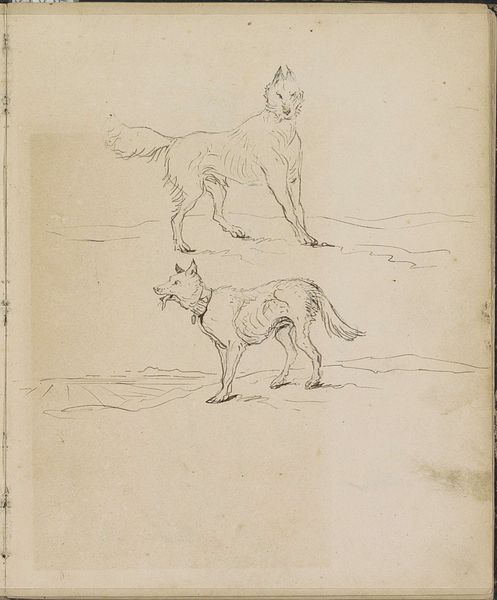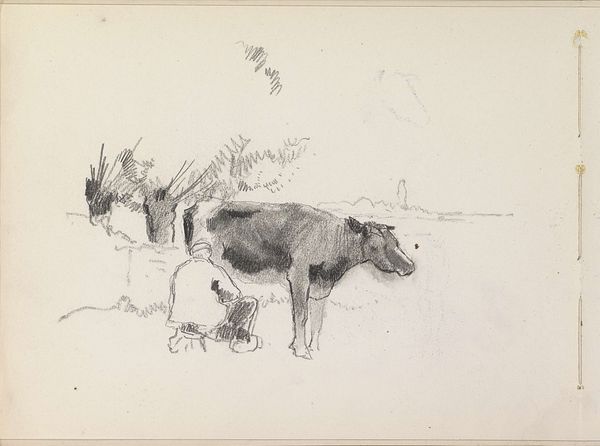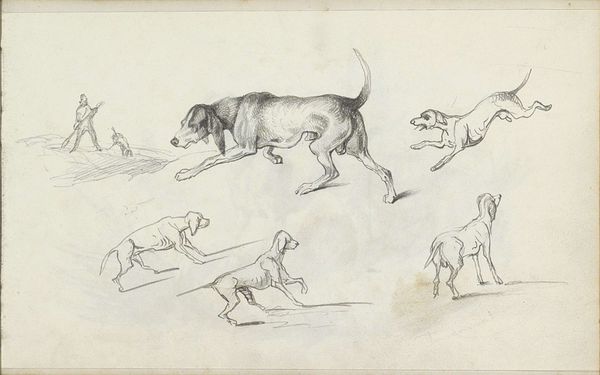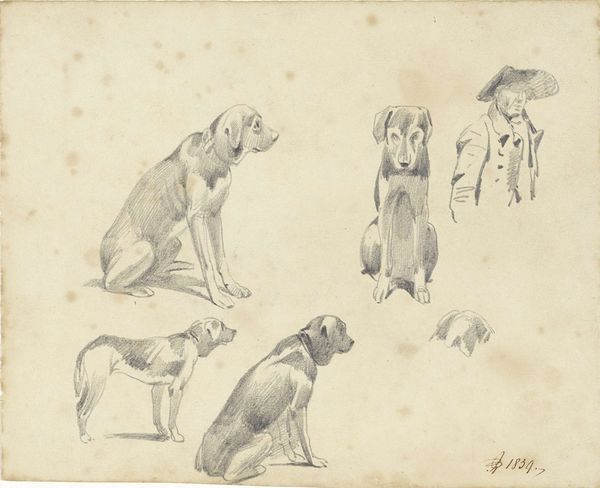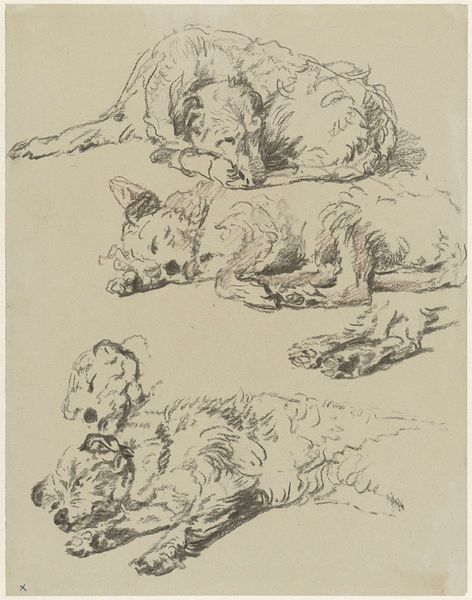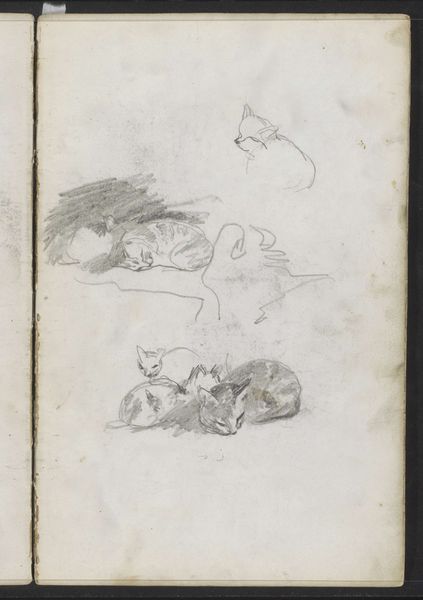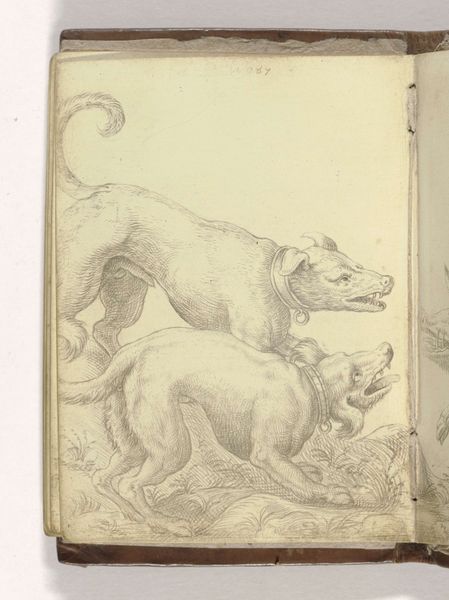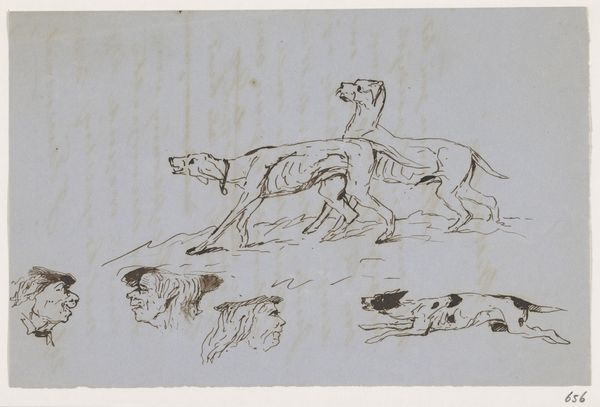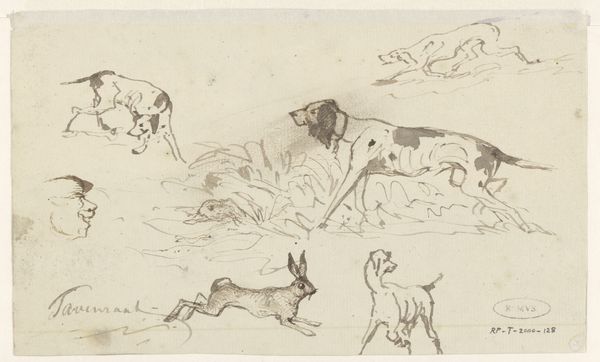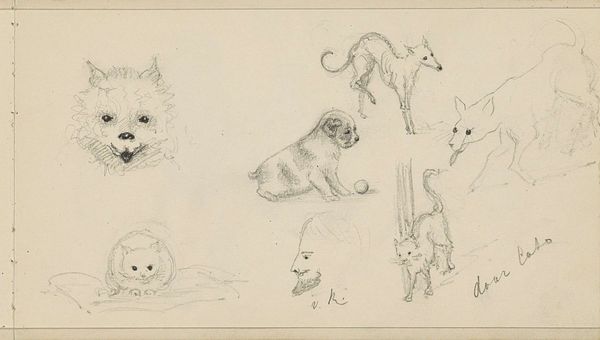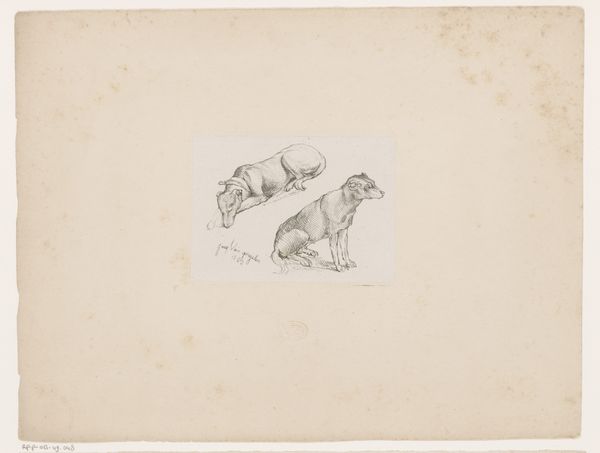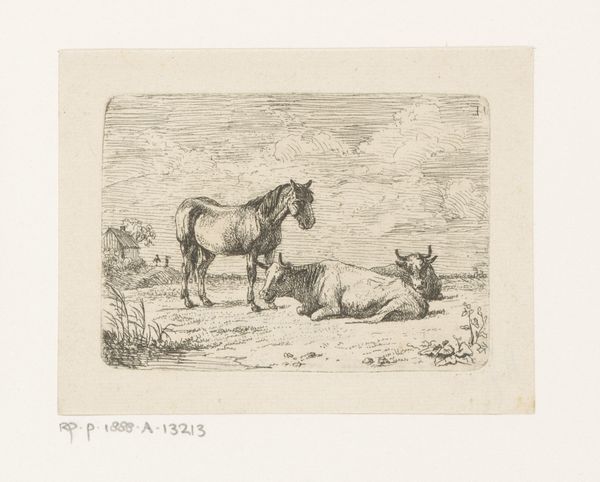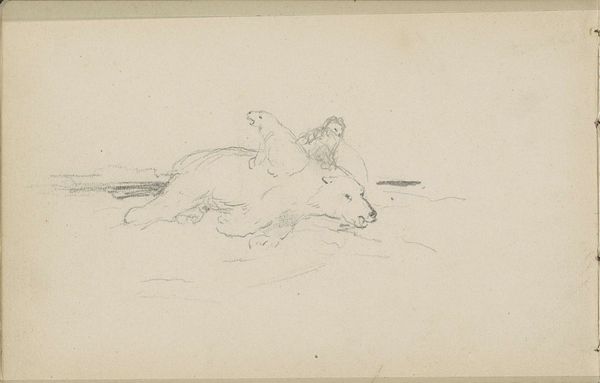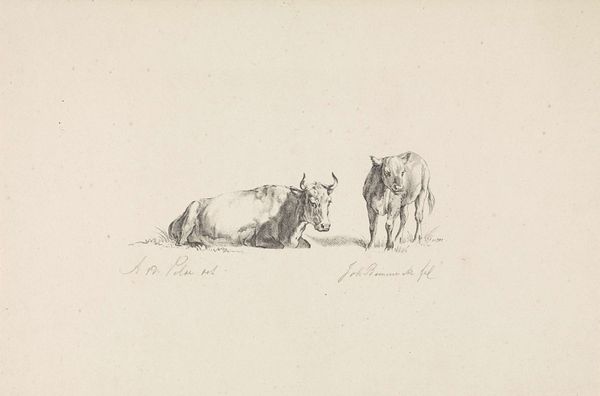
drawing, ink, pen
#
drawing
#
light pencil work
#
quirky sketch
#
animal
#
pen sketch
#
pencil sketch
#
dog
#
figuration
#
personal sketchbook
#
ink
#
ink drawing experimentation
#
pen-ink sketch
#
sketchbook drawing
#
pen
#
watercolour illustration
#
sketchbook art
#
realism
Copyright: Rijks Museum: Open Domain
Curator: Isn’t this Johannes Tavenraat’s sketch, dating from between 1841 and 1853, wonderfully unassuming? “Twee liggende en één staande hond”—Two Lying and One Standing Dog—a simple pen and ink drawing. Editor: I love how immediate it feels. Like we’re peeking into his personal sketchbook. There's a sense of intimacy observing these candid studies of animals just being themselves. Curator: Precisely! Tavenraat is known for his detailed landscapes, and animal studies such as these offer us such valuable insight into his working process. One can almost imagine him observing them, quickly capturing their essence with these strokes. Editor: Though, even within that observation, I wonder what choices he made in rendering these animals? The leashes around their necks subtly suggest domestication, servitude even. Curator: Do you think? I see more of a playful interaction; the sketch feels light-hearted. Perhaps a study for inclusion in one of his larger paintings. I can imagine these doggies running happily through a forest. Editor: Perhaps… but how complicit are these domestic animals? Especially if he imagines them integrated in an idyllic natural scenery. It’s that kind of naivety towards systemic violence that I think bears more scrutiny. What is "natural" in that scene and at what cost is that idealized relation to the landscape? Curator: That's certainly a thought-provoking perspective. I concede that throughout history dogs have had their symbolic roles depending on specific socioeconomic needs, however in Tavenraat's period in particular, the bourgeois cultivated a more affectionate relationship to animals. Editor: Maybe it reveals our impulse to see innocence where sometimes there's just participation in existing structures. But more fundamentally: how does one escape this intrinsic bind of subjectivity? Curator: Yes. But for now, can't we enjoy them for what they are, an unassuming but lovely artistic fragment, and then just keep questioning their function? Editor: Okay, fair point. Let's just agree to keep thinking critically, even about cute doggies.
Comments
No comments
Be the first to comment and join the conversation on the ultimate creative platform.
